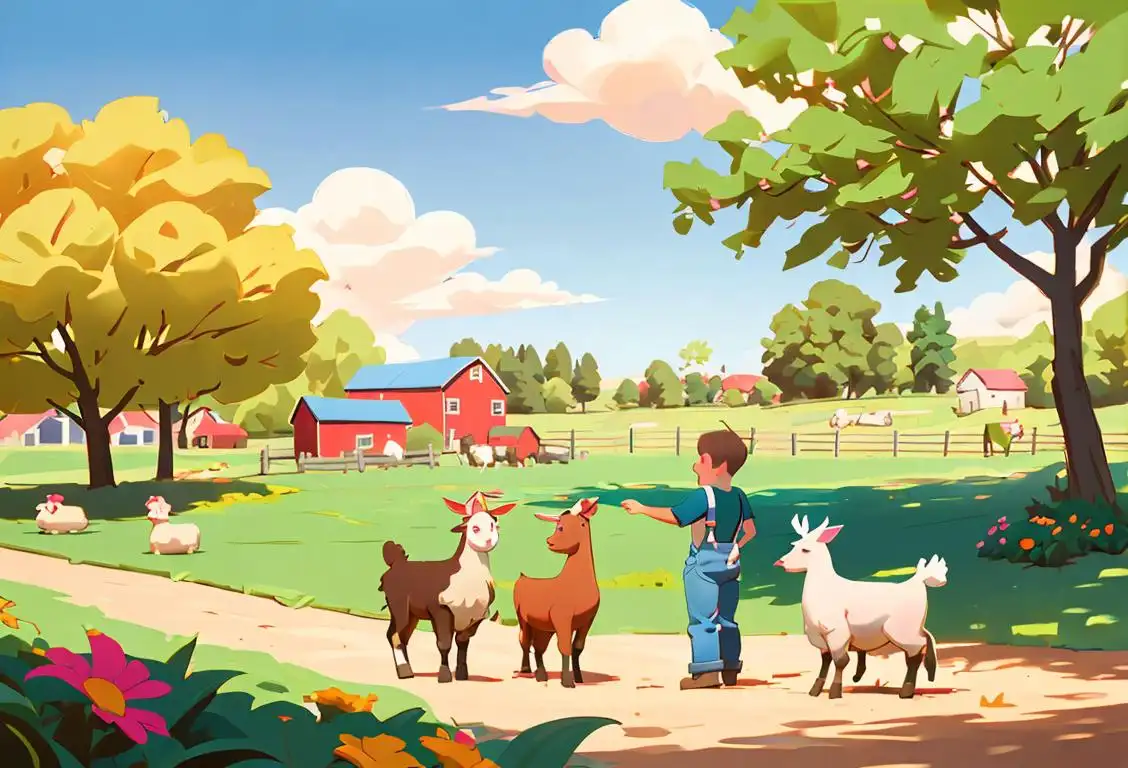National Farm Animals Day

Move over Fido and Fluffy, April 10th is National Farm Animals Day! On this day we swap our daily routine and spend some quality time appreciating the animals that keep our societies running. From the clucking chickens to the mooing cows, we couldn't do it without them!
When is Farm Animals Day?
It's national farm animals day on the 10th April.
History of National Farm Animals Day
Originally earmarked in 2016 when our online chatter detection on the day went off the charts with a whopping 3984 mentions, National Farm Animals Day has been dedicated to the appreciation of our valuable livestock and the role they play in our society. Make no mistaken identity here, it's not just a day to tweet about your favourite cute farm animals (though that's welcome too!). It's about understanding the crucial role these creatures play in keeping our economy and ecology balanced.
Spend National Farm Animals Day the Right Way
So, what does one do on National Farm Animals Day (apart from mooing around, pardon the pun)? Well, how about getting to know your local farm? Just hoof it over there and spend some time appreciating the farm seens. Dressing like a farmer is totally optional, but recommended if you're really into the spirit of the day. And don't forget to share the experiences on your social media channels with the hashtag #NationalFarmAnimalsDay to make the animals Internet famous!
Importance of Farm Animals
Why all the fuss about farm animals, you might ask? From providing food to revolutionizing industries to enforcing environmental sustainability, these animals are no joke when it comes to societal contributions. Plus, they are often the main characters in children's books, ensuring their popularity among the young and old. They're udderly amazing!
History behind the term 'Farm Animals'
8000 BCE
Domestication of Animals
During the Neolithic period, humans began to domesticate animals for various purposes. They selectively bred certain species to serve as sources of food, labor, and companionship. This marked the beginning of the close relationship between humans and farm animals.
3500 BCE
Development of Animal Husbandry
In ancient Mesopotamia, animal husbandry became a common practice. People started raising specific animals, such as cattle, sheep, pigs, and chickens, to meet their agricultural needs. Farm animals played vital roles in providing milk, meat, wool, eggs, and other essential resources.
1797 CE
Publication of 'The Complete Grazier'
'The Complete Grazier' by Thomas Smith was published in England, becoming one of the earliest comprehensive guides on livestock farming. The book provided valuable insights into the selection, management, and care of farm animals. It contributed to the advancement of animal husbandry practices.
1870 CE
Development of Scientific Breeding
Gregor Mendel's groundbreaking work on genetics laid the foundation for scientific breeding practices in the late 19th century. Farmers began to utilize Mendel's principles of inheritance to selectively breed farm animals with desired traits, leading to significant improvements in productivity and overall quality.
1922 CE
Founding of the International Livestock Exposition
The International Livestock Exposition, later known as the National Western Stock Show, was established in Denver, Colorado. This annual event showcased various farm animals, including cattle, horses, sheep, and swine, and played a pivotal role in promoting livestock breeding, education, and advancements in farming techniques.
1950s CE
Intensification of Factory Farming
The post-World War II era witnessed the rise of factory farming, also known as intensive animal farming. This method aimed to maximize production efficiency by confining animals in small spaces, using mechanization, and implementing specialized diets. While it increased agricultural output, it also raised concerns about animal welfare and environmental impact.
2006 CE
Recognition of Farm Animal Welfare
The World Organization for Animal Health (OIE) adopted its first set of international animal welfare standards, including guidelines for the welfare of farmed animals. This marked a significant step toward ensuring the humane treatment of farm animals and acknowledging their welfare as an important aspect of global agricultural practices.
Did you know?
Did you know that cows have an excellent sense of smell and can detect odours up to six miles away? So next time you picnic near a farm, don’t be surprised if you have some unexpected guests!Tagged
awareness food fun rememberance farm-animalsFirst identified
23rd March 2015Most mentioned on
10th April 2016Total mentions
3984Other days
Farm Animals Day
Fast Food Day
Cheese Lovers Day
Biscuit Day
Peanut Butter And Jelly Day
First Responders Day
Shrimp Day
Agriculture Day
Pumpkin Day
Meatball Day








